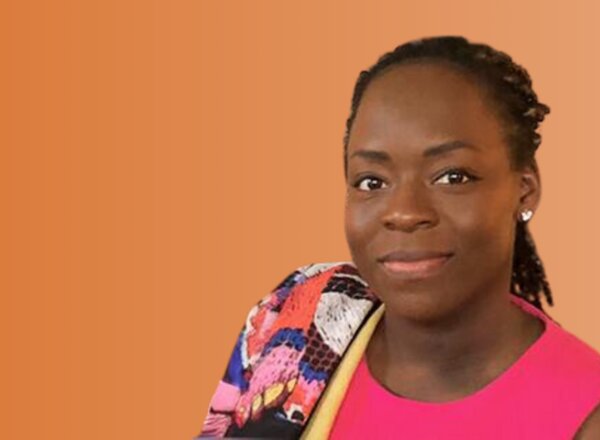27 January 2025
Bernadette Adeyileka-Tracz - Executive Director of Diabetes Africa - updates us on the inequality gap in care and support for Black populations, and how partnering with KHP Diabetes, Endocrinology, and Obesity is making a difference.
What progress has been made since last year's conference in addressing diabetes and obesity inequalities among Black populations?
Since the 2023 UK Forum, we've made meaningful progress in three key areas: diabetes technology access, pregnancy preparation, and foot care training.
At the forum this year, Prof. Partha Kar from NHS England shared encouraging data showing that pregnant Black women with Type 1 diabetes now have similar access to continuous glucose monitors as other groups. We're also seeing the technology gap closing for children with Type 1 diabetes - CGM access is now much more equal, and insulin pump access is heading in the right direction too.
Separately, we've developed a toolkit on tackling technology inequity for people of Black heritage in the UK, which has been endorsed by the Diabetes Technology Network UK and downloaded over 2,000 times since November 2024. It gives both healthcare professionals and policy-makers practical tools: checklists to spot problem areas and real examples of what has worked to close those gaps.
We've also launched our second toolkit, looking at how to improve 'well prepared for pregnancy' measures for Black women with diabetes in the UK. It's currently out for consultation, and brings together healthcare professionals, policymakers, and women living with diabetes to identify challenges and find solutions together.
Finally, our Diabetes Foot Care in Dark Skin Tone handbook is proving invaluable - with over 22,000 downloads since June 2024 and backing from the Royal College of Podiatry. It's filling a crucial knowledge gap, showing healthcare professionals exactly what to look for when traditional signs like skin redness aren't visible in darker skin tones.
What challenges remain in promoting collaboration among health professionals, researchers, and community leaders to close the inequity gap?
I think there are two important challenges. First, healthcare professionals are incredibly busy - it's hard to find time to get together with peers who are passionate about diabetes and related diseases, to share expertise and learn from each other. Plus, even when people do come together, they often aren't sure what steps to take next.
That's exactly why we run the Diabetes Africa UK forum and why we've created our equity toolkits - to give people both the space to connect and clear pathways forward. Take our first toolkit on diabetes technology equity - it's full of real examples that have helped close the gap. When people see these success stories, they're more likely to start their own local initiatives. Why reinvent the wheel when you can build on what others have learned?
This year's sessions explored topics like African and Caribbean foods, cultural considerations in pregnancy, and health equity in diabetes care. How did these resonate with attendees, and what feedback have you received about their practical application?
We wanted people to really experience these topics, not just hear about them. During our African and Caribbean foods session, everyone got to taste 'eba' and 'kale riro' (wondering what those are? Come along next time!). When healthcare professionals sit in their consultation rooms and hear about jollof rice, they'll now know exactly what their patients mean. They've tasted it themselves. They know if it's spicy, if it's sweet, whether they'd eat it again.
We mixed personal stories with clinical expertise in every session. People who live with diabetes shared their experiences alongside healthcare professionals who treat it. Our message was simple: change just one thing in your practice. And from what participants told us, they left with plenty of ideas about what that one thing could be.
Feedback from the event was overwhelmingly positive; an overall 9.8/10 satisfaction rating, and 4.8/5 in ability to apply the knowledge or strategies discussed in the event to their practice or personal life.
How do you see partners like KHP DEO contributing to the work highlighted at the conference, and how can these collaborations be strengthened?
KHP DEO is a hive for innovation - just look at how many of our speakers came from Guy’s and St Thomas’, King’s College Hospital, or South London and Maudsley NHS Foundation Trusts. What is clear is that KHP DEO's very existence, its values and aims, encourages everyone within their patch to strive to improve equity and to innovate.
Partners like KHP DEO help to raise the profile of ethnicity inequity, whilst investing in people, projects, and research to solve the problem. To make this partnership even stronger, we need to collaborate to demonstrate how KHPs investment and focus on innovation plays out in practice alongside Diabetes Africa’s outputs. When other NHS teams see the impact of small adjustments, they're more likely to try them too.
Looking ahead, what are your priorities for the 2025 forum, and how can attendees and partners support these goals?
We're expanding our series of practical guides. After our technology and pregnancy guides, we plan on developing new toolkits on kidney care and obesity before the next forum. Partners can support us by sharing their expertise and experiences for these guides, helping us create resources that really work on the ground.
But what we really want for 2025 is to welcome an even greater number of diverse attendees. We know that many people couldn't make it last time, and we want to change that. Our partners and past attendees can help by spreading the word about what makes this forum special - it's a different way of looking at diabetes care, where everyone shares this amazing passion for making things better. Invite colleagues and peers to attend. And yes, we have a lot of fun together! The energy in the room when you bring together people who really care about improving diabetes care - it's incredible. That's what we want more people to experience.





